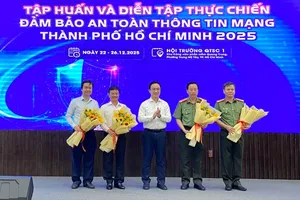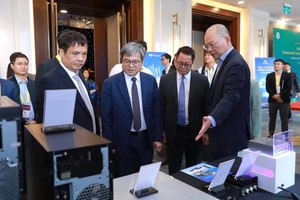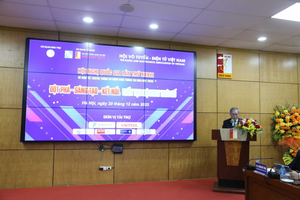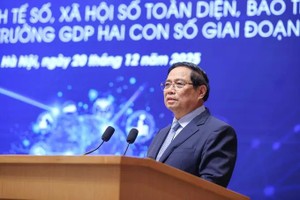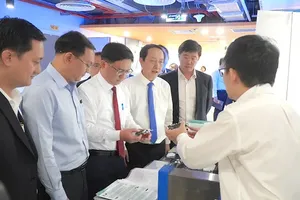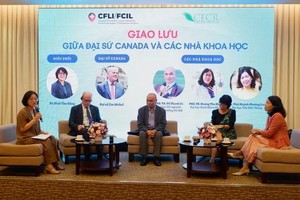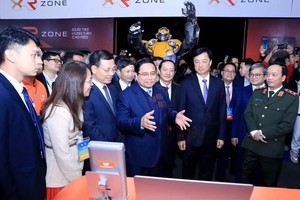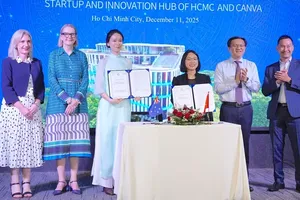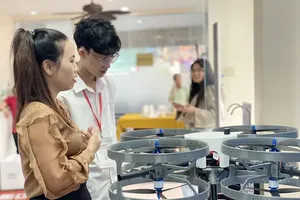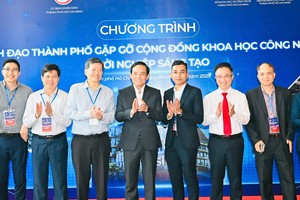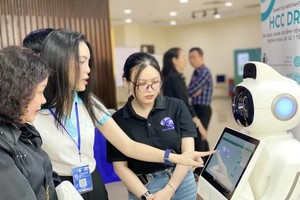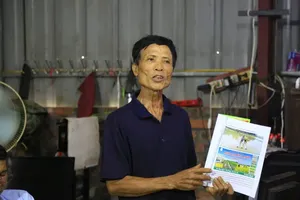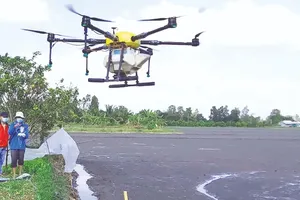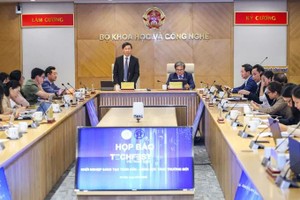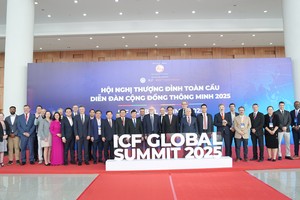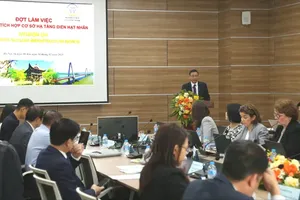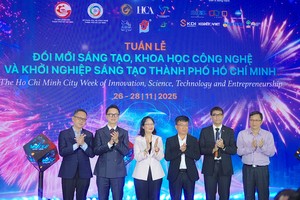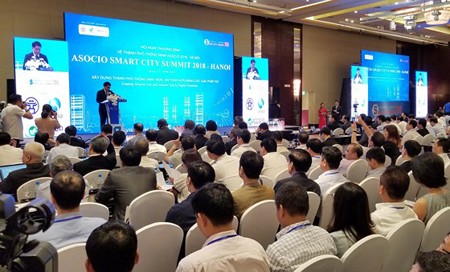
The conference aimed at sharing visions, strategies, policies, and experience on building smart cities; fostering the construction of smart urban areas in Vietnam as well as neighboring nations via implementing applications on the platform of new technologies like Internet of Things, Big Data, Artificial Intelligence, Augmented Reality.
In the opening speech, Chairman of the Hanoi People’s Committee Nguyen Duc Chung said that Hanoi is one of the mega cities in the world regarding population and surface area. Its urbanization rate and mechanical population increase are so significant that there exist grave planning, traffic, healthcare, education, energy, housing development, and pollution challenges.
As a result, the city hopes that it can be transformed into a smart, safe, and friendly city for residents via taking advantage of new key technologies in Industry 4.0. This requires the local authorities to wisely select suitable methods in order to lessen current problems while fostering economic and social development.
Vietnam is considered one of the nations with the quickest urbanization rate in the world. Until the end of 2017, it has 813 urban areas with the urbanization rate of 37.5 percent. With such a dramatic growth in Hanoi and Ho Chi Minh City, it is increasingly urgent to build a sustainable and smart city that can offer safe and friendly utilities for its citizens.
Many important presentations were delivered in the conference, including the proposal to build a smart city in Vietnam by the Ministry of Construction, the speech on connection standards for a smart city and information security, the experience sharing on data analysis and corresponding planning from Sweden, the presentation on the model ‘society 5.0’ of Japan, the experience sharing on smart city building from Malaysia, and the introduction of new technology trends for smart urban areas by Google.
According to Mr. Vu Minh tri, Deputy Director of VNG responsible for Cloud Service cum CEO of VinaData, when building a smart city, there is a great importance in the connection methods among the infrastructure and platforms where the database as well as application run so that cities can optimize their resources.
In the framework of the summit, 6 seminars drawing much attention from the local authorities of large cities like Hanoi or HCMC were organized. They covered the topics of digital government and strategies to build a smart city, smarter city with less cash transactions, infrastructure – the essential base for smart cities, directional data on incomes and data analysis & planning for cities, smart industry, applications and solutions for a smart city.
The conference attracted more than 700 delegates who are senior managers of ministries, departments, provinces, cities nationwide as well as international participants from 20 countries.
